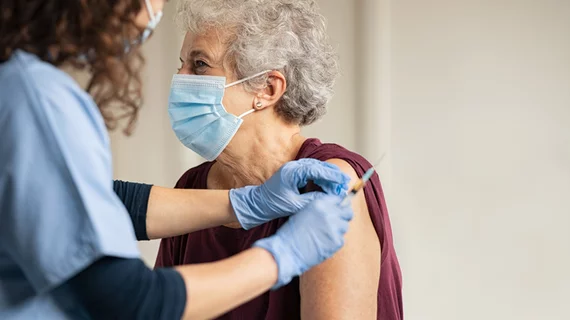Updated COVID-19 booster protects against subvariants, new study confirms
The updated COVID-19 vaccine does provide added protection against the latest variants of the virus, including Omicron XBB-related variants, according to the Centers for Disease Control and Prevention (CDC).
The XBB sublineage of the COVID-19 virus has been increasing in prevalence since August 2022. As of Jan. 21, 2023, the XBB.1.5 variant accounted for 52% of cases nationwide. The CDC’s latest MMWR data revealed the bivalent vaccines do appear to provide additional protection against symptomatic BA.5-related sublineage and XBB/XBB.1.5-related sublineage infections in persons who had previously received two, three or four monovalent vaccine doses.
“All persons should stay up to date with recommended COVID-19 vaccines, including receiving a bivalent booster dose when they are eligible,” the agency urged in its Jan. 25 report.
While the CDC found protections from the booster, there is variance among age groups. Adults ages 18 to 49 had a 48% reduced risk of mild illness with the bivalent booster, compared to 38% for those between 50 and 64, and 42% reduced risk for seniors.
The findings stem from the CDC’s study comparing people who received the new booster and those who received between two to four doses of the original vaccine, with the new booster targeting the omicron BA.5 variant.
“Findings from this study suggest that bivalent booster doses are continuing to provide additional protection against symptomatic infection for at least the first three months after vaccination in persons who had previously received two, three or four monovalent vaccine doses, which supports recommendations to continue to increase bivalent booster coverage,” wrote first author Ruth Link-Gelles, PhD, et al.
The authors noted some limitations of their study, including using self-reported data for vaccination status, previous infection history and underlying medical conditions. In addition, they noted previously infection was likely underreported, which could skew some underlying results as previous infection provides some protection against repeat infection, they said. Further, bivalent booster dose coverage to date has been low, “which could bias results if persons getting vaccinated earlier are systematically different from those vaccinated earlier,” the study authors wrote. Finally, they noted that the COVID-19 exposure risk and mask use were not collected, and the study did not control for time since the last monovalent dose.
Overall, the study showed good news that the bivalent mRNA booster dose does provide added protection against symptomatic XBB/XBB.1.5 infection for at least three months after vaccination in persons who have previously received doses of the monovalent vaccine.

